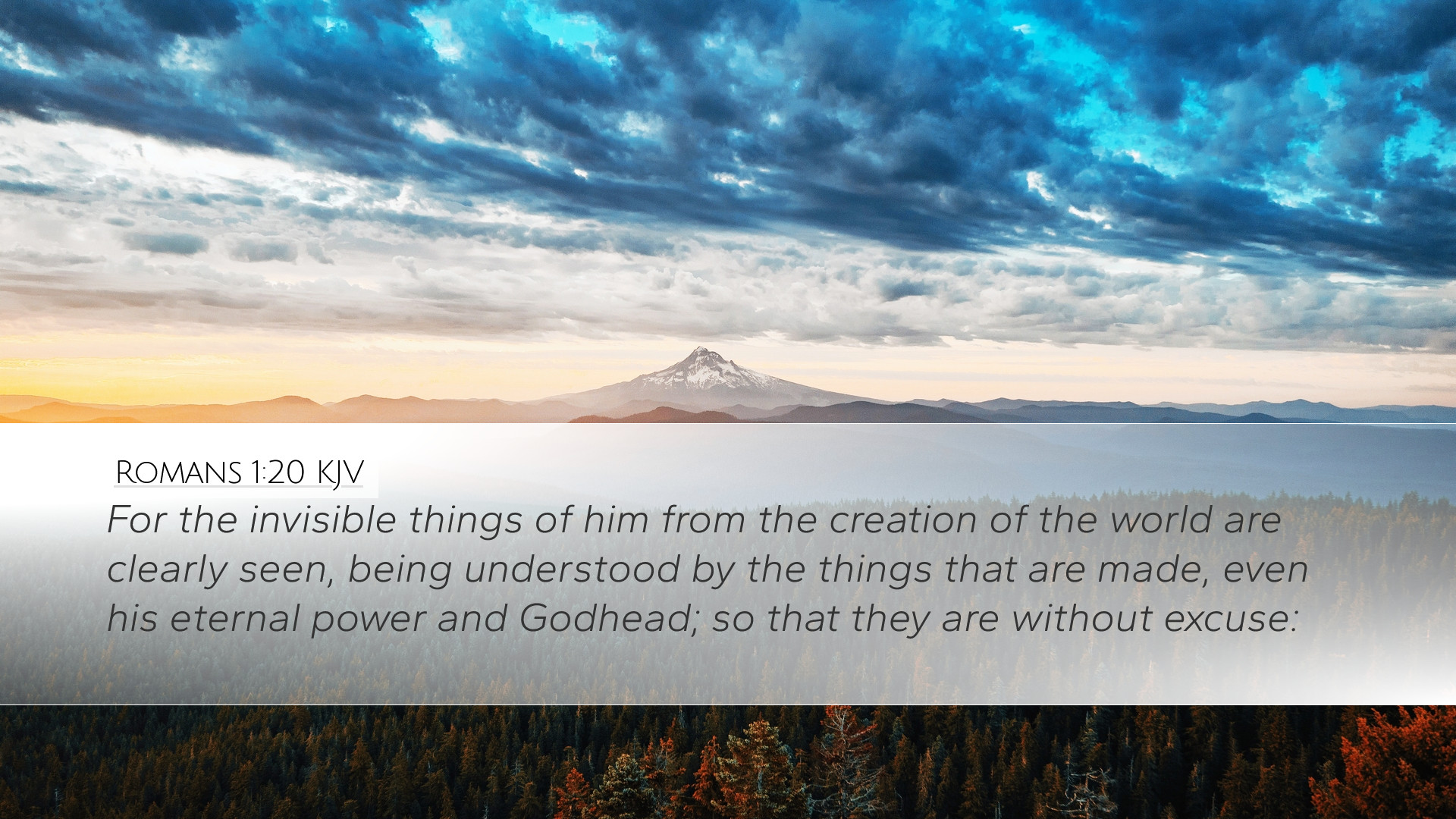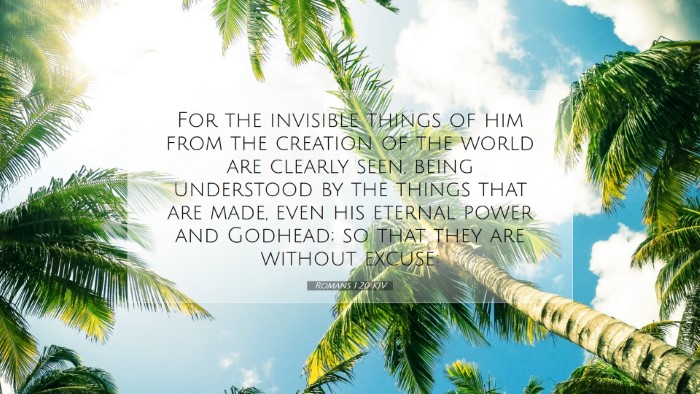Commentary on Romans 1:20
Verse Reference: Romans 1:20
For since the creation of the world God's invisible qualities - his eternal power and divine nature - have been clearly seen, being understood from what has been made, so that people are without excuse.
Introduction
The Apostle Paul, in his epistle to the Romans, embarks on a powerful exposition concerning the nature of God and humanity's relationship with Him. Romans 1:20 serves as a cornerstone for understanding the general revelation of God through creation. This verse encapsulates profound theological truths that have captivated the minds of scholars, theologians, and faithful believers alike.
Summary and Insights from Public Domain Commentaries
God’s Invisible Attributes
Matthew Henry notes that Paul emphasizes God’s invisible qualities, which signify attributes that cannot be perceived through the senses but are nevertheless evident to the mind's eye. This highlights the doctrine of general revelation where God makes Himself known to all of creation through His works.
Understanding Through Creation
Albert Barnes expounds that the phrase “clearly seen” indicates that the evidence of God's power and deity are manifest in the fabric of the universe. Nature itself serves as a potent witness to the Creator; hence, to disregard this evidence is tantamount to a conscious rejection of divine truth.
Accountability of Humanity
Adam Clarke emphasizes the concluding phrase “so that people are without excuse”, asserting that all who witness creation are held accountable for recognizing God's hand in it. This lack of excuse underscores the responsibility of humanity to respond to God’s revelation and illustrates the justice of God in holding individuals accountable.
Theological Implications
This scripture lays the groundwork for several key theological principles:
- General Revelation: The concept that God can be known through the natural world. The universe is a declaration of God’s existence, power, and divine nature.
- Human Responsibility: Each individual is responsible for responding to the revelation of God. Ignorance is not a valid defense, as creation acts as a constant reminder of God’s presence.
- The Nature of God: The verse presents God as both eternal and divine, reminding us of His transcendent nature beyond physical limitations.
Practical Applications
The insights gleaned from Romans 1:20 hold significant implications for pastoral ministry, academic study, and personal spiritual growth:
- Encouragement for Apologetics: This verse provides a strong foundation for defending the faith, demonstrating that belief in God is rational and supported by observable evidence.
- Inspiration for Worship: Recognizing God’s presence through creation can lead to increased appreciation of worship, as believers understand the universe as a reflection of God’s glory.
- Foundation for Evangelism: The verse encourages believers to share the Gospel, as every individual is inherently aware of God’s existence through His creation, making evangelistic efforts more pointed and urgent.
Conclusion
Romans 1:20 serves as a vital reminder of humanity's connection to the Creator through the majesty of creation. The insights from public domain commentaries underscore the clarity of God's revelation, the accountability of individuals, and the groundwork for understanding God's character. Pastors, students, and scholars alike find in this verse a profound and meaningful theology that challenges and deepens their faith, urging them to explore the interplay between God, humanity, and the natural world.


